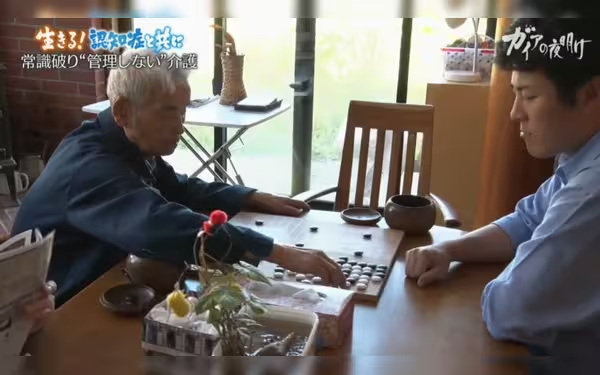Saturday, October 5, 2024 07:53 PM
Innovative Dementia Treatments Transforming Care Landscape in Japan
- Leqembi medication shows 27% efficacy in alleviating dementia symptoms
- Kikippa device's sound therapy enhances memory and cognitive functions
- Ginga no Sato's 'unmanaged care' model prioritizes individualized support
 Image Credits: channelnewsasia
Image Credits: channelnewsasiaExplore Japan's response to rising dementia cases with innovative treatments and compassionate care models, showcasing a transformative shift in dementia care practices.
Japan is currently facing a significant challenge as the prevalence of dementia continues to rise among its ageing population. By 2025, it is estimated that over six million individuals in Japan will be living with dementia, affecting one in every five people over the age of 65. In light of this concerning trend, Japan has been witnessing a surge in innovative treatments and compassionate care approaches aimed at providing hope and dignity to those impacted by the disease.
One notable advancement in dementia treatment is the introduction of 'Leqembi', a medication developed by Eisai of Japan and Biogen of America. This drug, designed for individuals in the early stages of cognitive impairment, has demonstrated a 27% efficacy in alleviating symptoms, representing a significant breakthrough in dementia care. Additionally, a novel sound therapy method utilizing the 'kikippa' device, created by Shionogi & Co. Ltd., is being explored. By employing sound modulation at a 40Hz frequency to stimulate gamma waves in the brain, this therapy shows promise in enhancing memory and cognitive functions in dementia patients.
Furthermore, a shift in caregiving paradigms is evident, exemplified by the 'unmanaged care' model implemented at Ginga no Sato, a care facility in Iwate. This approach focuses on integrating residents into daily activities that resonate with their past experiences, fostering a sense of normalcy and belonging. Caregivers like Chiharu Nagai embody this philosophy, emphasizing the importance of personal histories and preferences in creating a supportive community where individuals can maintain their identity and autonomy.
Despite the progress in dementia care, challenges such as treatment accessibility and long-term efficacy persist. Continuous research and development efforts are essential in addressing these obstacles. Nevertheless, models like the one at Ginga no Sato highlight a compassionate and individualized approach to dementia care, emphasizing empathy, respect, and community engagement as vital elements of effective support for those living with the disease.
As Japan confronts the implications of its ageing population, the combination of innovative medical treatments and compassionate care models offers a ray of hope for enhancing the quality of life for individuals affected by dementia. This ongoing journey signifies a transformative shift towards more inclusive, effective, and humane practices in dementia care, reshaping the landscape of ageing with dignity.













